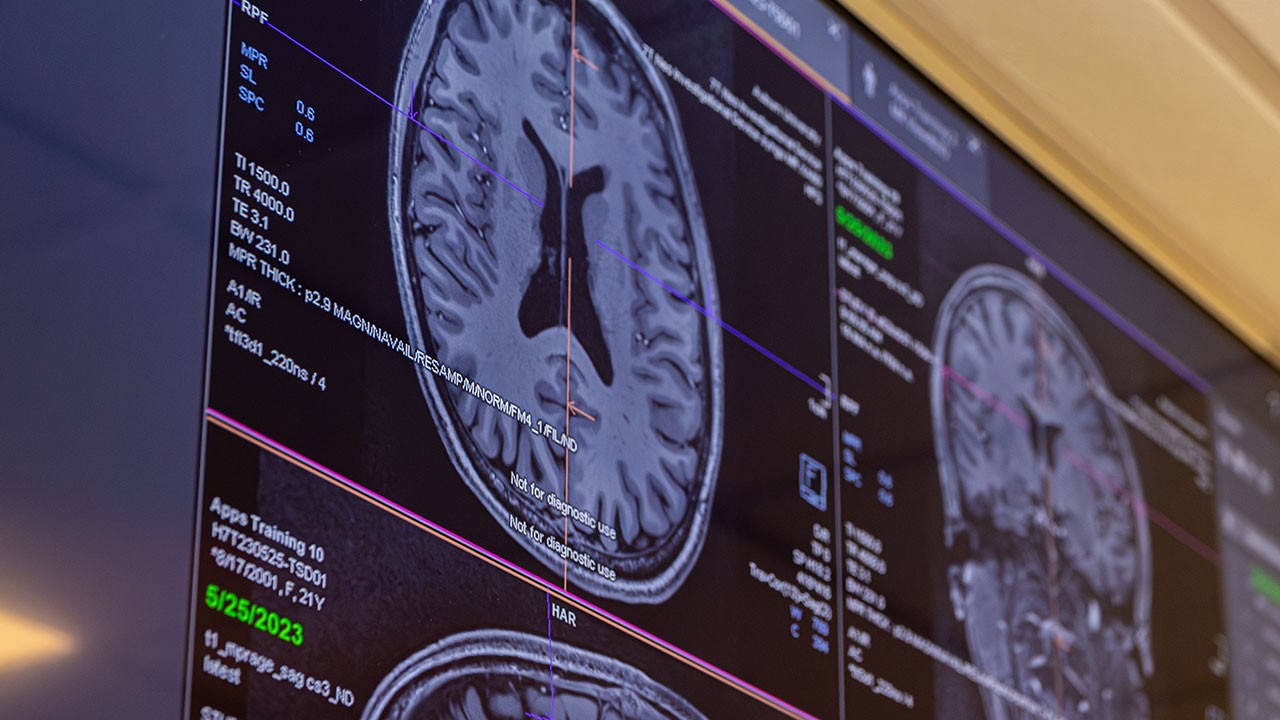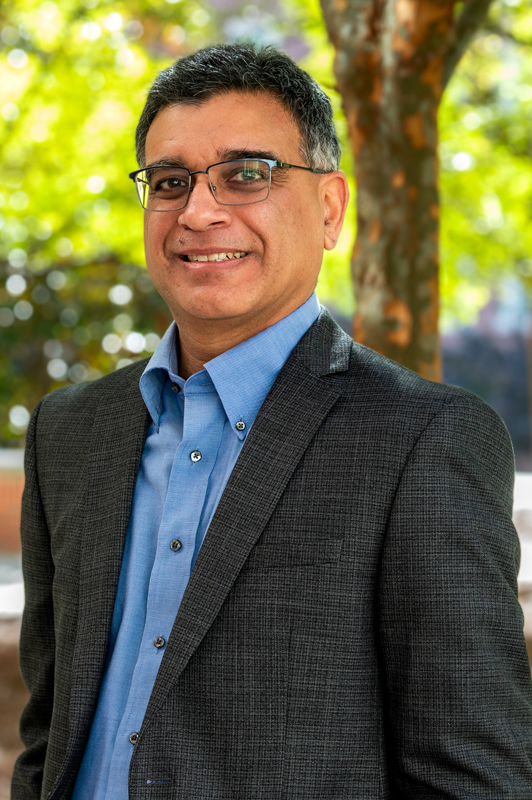Professor part of $5.3 million NIH study to identify actionable targets for schizophrenia interventions
Published: Feb 2, 2024 1:10 PM
By Joe McAdory
Schizophrenia affects roughly 24 million people worldwide, according to the World Health Organization.
“Quality of life is compromised, lifespans are reduced, and brings heavy burden to families and health care systems,” said Adil Bashir, associate professor in electrical and computer engineering. “People are looking for better means to manage this disease. We must ask, ‘what are the treatment targets out there and which ones are working effectively?’”
Abnormal brain development has long been thought to contribute to the pathophysiology of schizophrenia. However, it wasn’t until the past five years that people started thinking, ‘maybe there is abnormal energy metabolism in the brain, and if we can prove that there are energy deficits in the brain, then perhaps we can develop novel treatments targeting these processes and a more effective treatment plan.’”
In collaboration with researchers from the University of Alabama-Birmingham’s Department of Psychiatry, Bashir is hoping to do just that.
Their $5.3 million Phase I study, “Schizophrenia and related disorders during mid- to late-life,” aims to identify actionable targets for novel interventions designed to ameliorate aberrant aging in schizophrenia spectrum disorders (SSD). Funded by the National Institute of Health, Auburn University’s portion of the grant is $615,000.
“Schizophrenia spectrum disorders are widely considered to be neurodevelopmental in origin,” Bashir said. “Determining the trajectories of physiological abnormalities in different phases of this condition and to identify sensitive biomarkers for predicting eventual outcomes is needed.
“Recent findings suggest that energy metabolism (bioenergetics) in the brain — which affects all aspects of brain function — is negatively affected by aging. This is suspected as a potential driving force behind structural brain aging and cognitive aging. These principles of aging in the general population provide the conceptual framework for our project.”
In association with the Auburn University Neuroimaging Center, researchers will gather evidence that indicates that age-related changes might be abnormal in psychotic disorders – and that bioenergetics are negatively affected by aging. How? By examining brain MRI of 120 subjects between the ages of 35-65 years with SSD and comparing those to healthy individuals using the center’s 7 Tesla magnetic resonance imaging (MRI) scanner over a period of five years.
Researchers will leverage state-of-the-art multimodal neuroimaging techniques and tailored cognitive tasks to systematically evaluate age-related changes in brain structure, function, and bioenergetics in the dorsal anterior cingulate cortex (dACC), a hallmark brain region implicated in the pathophysiology of SSD that plays a critical role in nonsocial and social cognition.
“When you look at a clinical MRI it is mainly acquiring proton signal from water molecules in the body,” Bashir said. “I’m interested in doing something more; specifically, I am imaging phosphorus nucleus and developing innovative MR methodology to non-invasively and rapidly detect abnormal bioenergetics. Progress in this area has been hampered for decades due to methodological challenges. Auburn’s 7T MR scanner and novel approaches we are developing have been instrumental in addressing these challenges. We are one of the few institutes that can do that.”
“We will determine if these measurements differ from those of healthy volunteers and if this effect changes with age,” Bashir said.
Research that positively impacts society is important to Bashir, who comes from a family of physicians.
“When I was beginning my PhD, I said ‘OK, I don’t want to do just plan electrical engineering research, I want to do something that contributes to a field where I can directly help people.’ Human physiology – it’s an interesting puzzle. We’ve been trying to understand it for decades, and I think I have one of the keys.”
Media Contact: , jem0040@auburn.edu, 334.844.3447
Adil Bashir will examine brain MRI of 120 subjects with schizophrenia spectrum disorders between the ages of 35-65 years and compare those images to healthy individuals.


